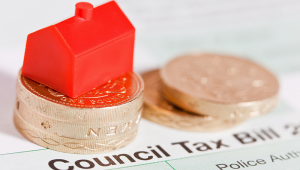Analysis by the Fraser of Allander Institute, released yesterday, shows that a dramatic divergence in council tax policy north and south of the border in recent years has left rates in Scotland “markedly lower” than elsewhere in the UK.
Following a nine year freeze in council tax rates north of the border, the average Band D rate in Scotland is now 28% lower than in England and 21% below the average in Wales, it said.
The average Band D rate in Scotland is now 14% lower in real terms than it would have been had increases kept pace with inflation.
By contrast, council tax rates in England are around the same in real terms as they were in 2008-09, while in Wales, where there has been no freeze, average rates are 20% higher than a decade ago.
However, although raising rates in Scotland to match those in England in Wales would raise up to £900m in additional revenue, the regressive nature of the tax meant the move would have adverse distributional consequences, the institute warned.
In particular, the narrow spread of council tax bands in Scotland, combined with the nearly three decades that have elapsed since the last revaluation, meant that lower value properties would face proportionately larger increases in their council tax bills.
“But rather than making the case for inertia, what this illustrates is the critical importance of wider reform of the system of property taxation,” the institute said.
“There is scope to raise revenue from property taxation, but only if the fundamental flaws in the existing system are addressed.”
The analysis adds weight to the growing case for reform of local taxation in Scotland, which formed a significant part of budget negotiations between the Scottish Government and the Scottish Greens earlier this year.
As part of the budget deal, ministers agreed to convene cross party talks on a replacement for the council tax, with legislation to be published by the end of this parliamentary term if agreement is reached.
The Scottish Government also said it would legislate allow councils to raise additional revenue from taxes on tourism and workplace parking in what it described as the most substantial empowerment of local authorities since devolution.
The Fraser of Allander Institute said the promise of talks to replace council tax was a welcome first step, but questioned whether the discussions would lead to significant change.
“We have been here before [and] the case for reform is well understood,” it said.
“It remains to be seen whether this next review will catalyse meaningful change in a way that the Burt Review of 2006 and the Commission on Local Tax Reform of 2015 could not.”



















